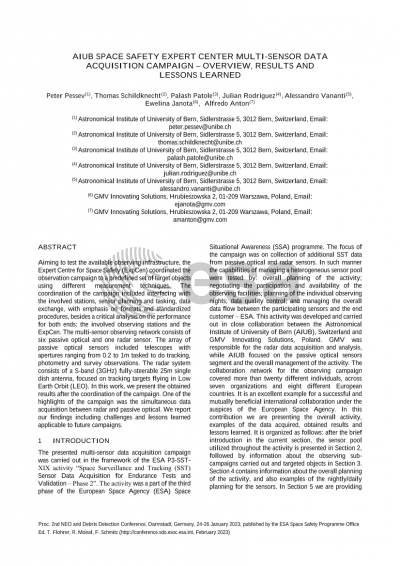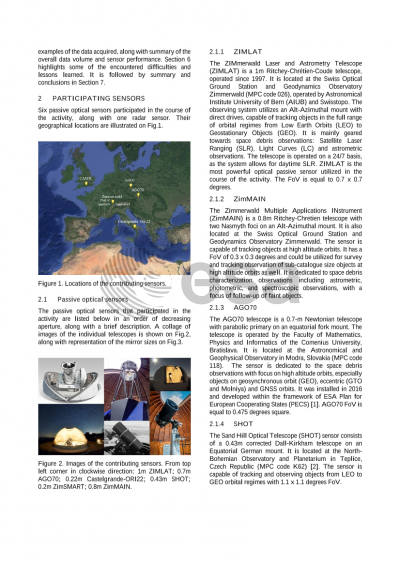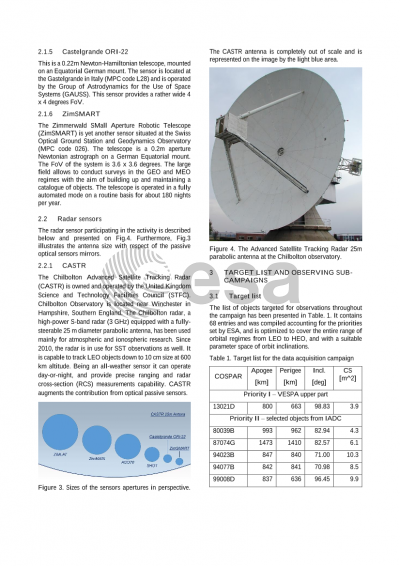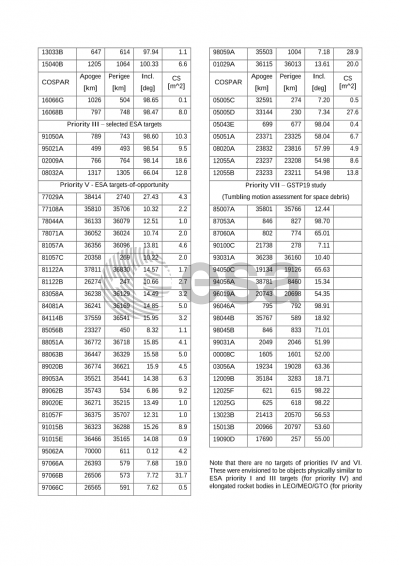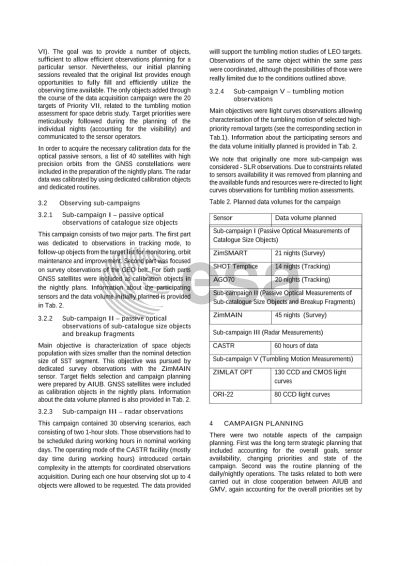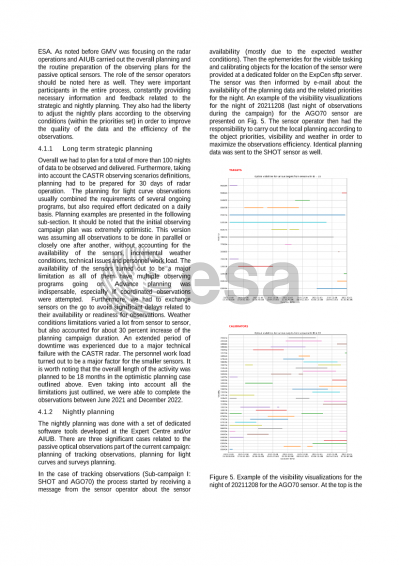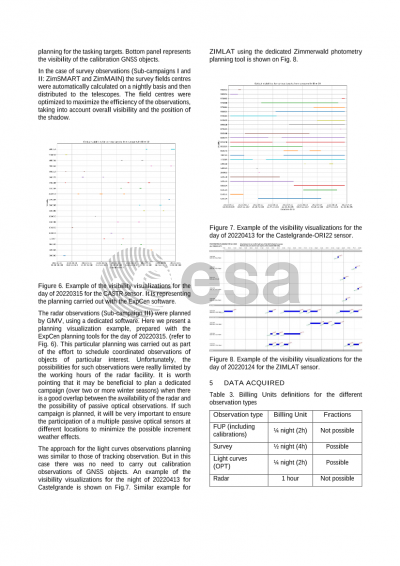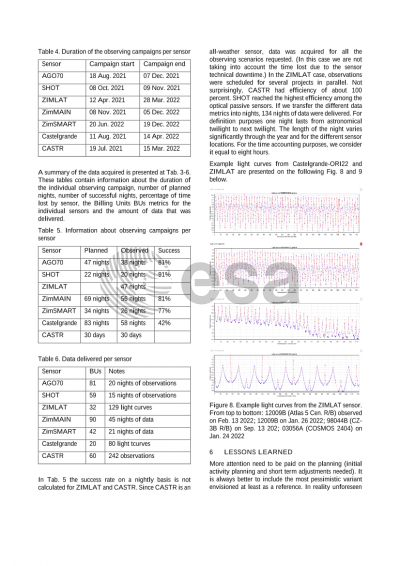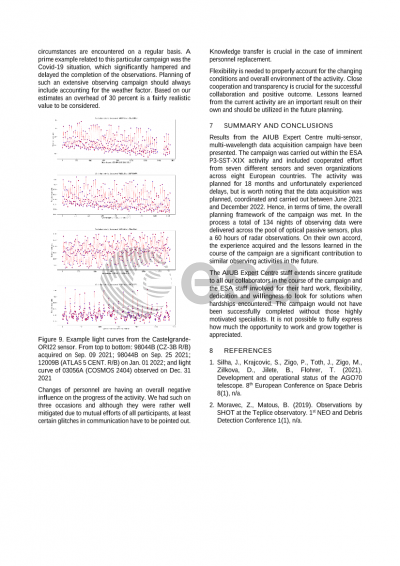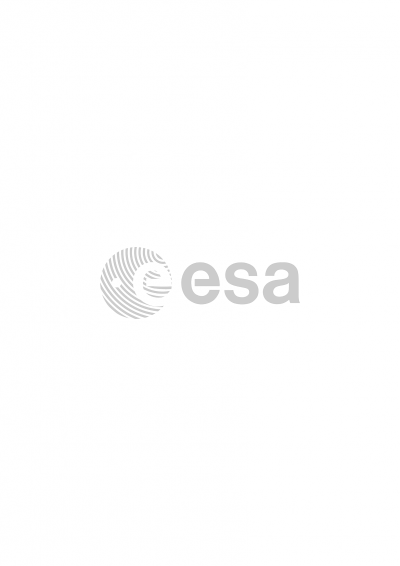Document details
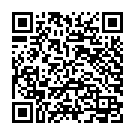
Abstract
Aiming to test the available observing infrastructure, the Expert Centre for Space Safety (ExpCen) coordinated the observation campaign to a predefined set of target objects using different measurement techniques. The coordination of the campaign included interfacing with the involved stations, sensor planning and tasking, data exchange, with emphasis on formats and standardized procedures, besides a critical analysis on the performance for both ends: the involved observing stations and the ExpCen.
The multi-sensor observing network consists of ten passive optical and one radar sensor. To guarantee worldwide coverage, stations in the Canary Island, Australia and South Africa were added to the existing ones located in the European continent. The array of passive optical sensors included telescopes with apertures ranging from 0.2 to 1m tasked to do tracking, photometry and survey observations. The radar system consists of a S-band (3GHz) fully-stterable 25m single dish antena, focused on tracking targets flying in Low Earth Orbit (LEO).
In this work, we present the obtained results after the coordination of the campaign. One of the highlights of the campaign was the simultaneous measurement acquisition between radar and passive optical. We report our findings including challenges and lessons learned applicable to future campaigns.
Preview
